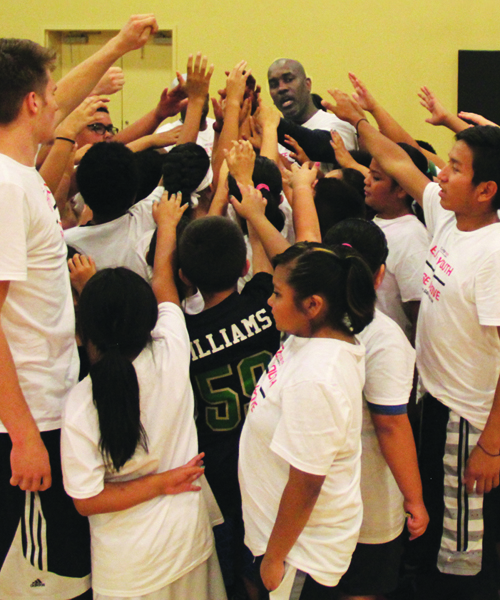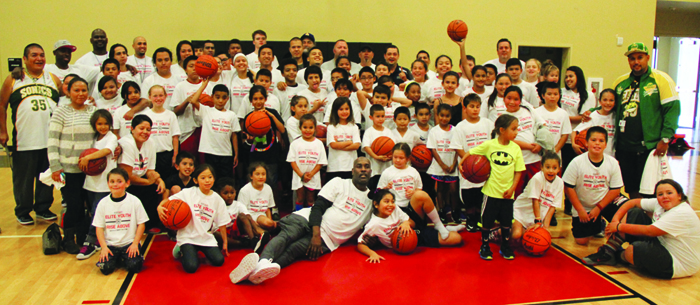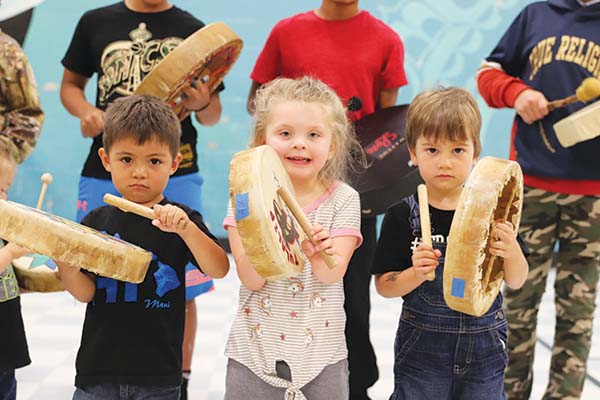
By Kalvin Valdillez, Tulalip News
Not so many generations ago, Tulalip youth were once punished for speaking their language and practicing their traditions at boarding schools that were established to erase Native culture by the United States government. Today, the young people of Tulalip are not only proudly drumming and dancing at school, but also passing that knowledge down to the next generation.
The morning of July 12 marked the tenth Cultural Day celebration of the year at the Betty J. Taylor Early Learning Academy (TELA). The academy introduced the monthly half-an-hour gathering to their students in October 2018, and since then the students have been engaging in a number of activities, learning about the lifeways of the Tulalip people.
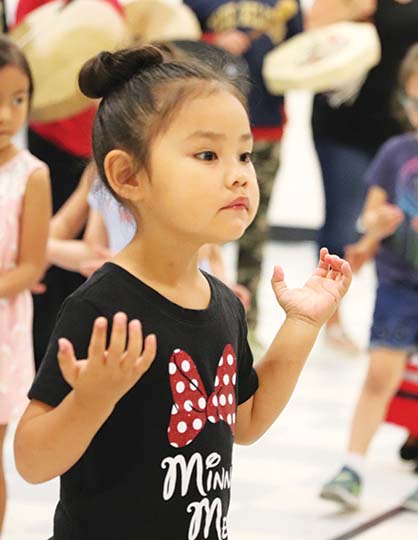
Upon joining forces with the Lushootseed language department, TELA also successfully implemented a language immersion component into their curriculum. Lushootseed teachers frequently visit the classrooms to share stories, sing songs and speak the language directly to the students.
“I believe that our children need to know from the youngest ages who they are,” says Betty J. Taylor Early Learning Academy Director, Sheryl Fryberg. “Research says, if they are totally connected to who they are as birth to five children, they’re going to be more successful in their lifetime because they have that solid sense of self.”
Over the years the Tulalip Tribes has made strong efforts incorporating cultural teachings at each academic level, partnering with the Marysville School District to ensure Tribal students know about their art, food, history, language, sovereignty and traditions. So as the kids make their way through their educational journey, they will continue building upon the vision their ancestors set forth seven generations prior. And the work TELA is doing is helping strengthen that bond between each student and their culture, providing a strong foundation for the future leaders.
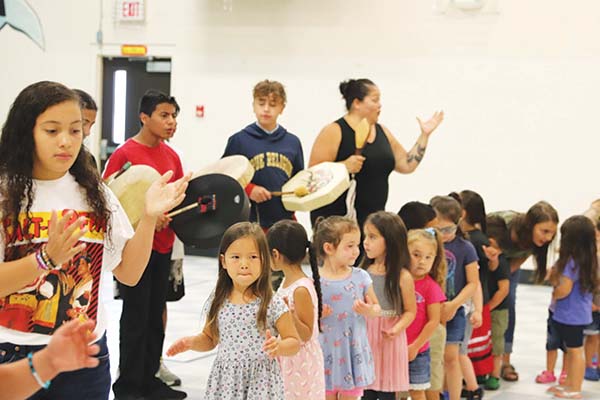
Quil Ceda Tulalip Elementary (QCT) is one of the schools teaching their students about Tulalip’s rich history and heritage. Under Cultural Specialist Chelsea Craig, the school has established a morning assembly where the students begin each school day singing and dancing to Tulalip songs, such as the welcome song and the paddle song. QCT also hosts a number of cultural events throughout the year including Billy Frank Jr. week and the 5th grade potlatch.
Through the development of QCT’s morning assembly, Chelsea cultivated a strong group of young singers and dancers who proudly honor their ancestors by performing at every assembly. Those students, some of whom are now in middle school, continue drumming and dancing at local cultural gatherings and coastal jams, sharing their teachings with their pupils.
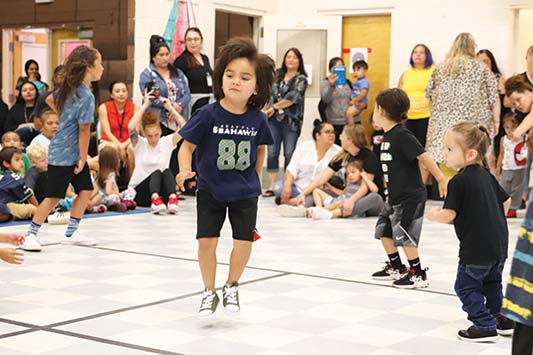
Combining efforts to ensure the youth have a strong connection to their cultural way of life, TELA invited Chelsea and company to lead a culture jam for one of the last Cultural Days of the school year.
The young TELA students were invited to participate in the jam and enthusiastically followed the lead of the older kids, some picking up a drum and singing while others took to the open dancefloor. For thirty exciting minutes, the kids enjoyed themselves to no end, getting lost in song and dance.
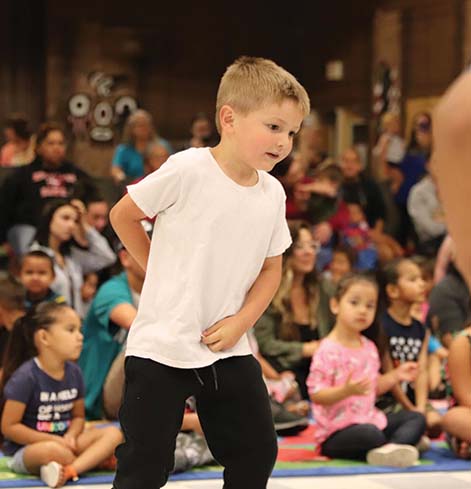
During this interaction, the students learned some important and valuable lessons from their older peers such as to only drum when offering a song, and also how each dance correlates to the message of the songs. By hearing the songs early in life, the kids are more likely to remember the words, the drum patterns and dances, so when the time comes for them to share their knowledge, they too can lead with confidence, respect, gratitude and purpose just like Chelsea’s young group of traditional singers and dancers.
“It’s such a blessing to be invited today because these students are our future drummers and singers,” Chelsea expresses. “To start making those connections with their next transition in school is something that we’re purposefully doing to start instilling these songs at a very young age. And to see their peers as leaders, that’s important. Our drummers are our leaders and they’re someone to look up to and inspire to be. It warms my heart because some of the little ones here may have never danced before this morning, but they feel it in their heart and feel safe enough in this school to get up and express it a very young age.”
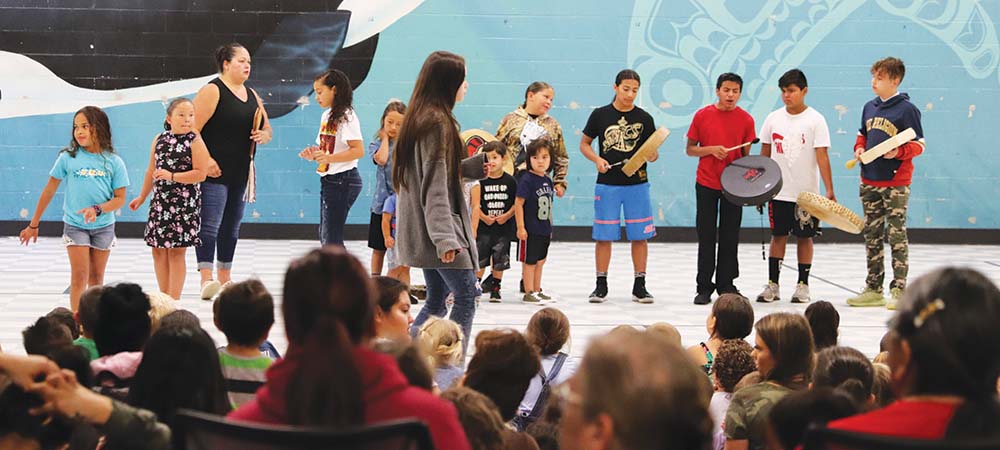
Kids soak up knowledge at a young age and with TELA’s monthly Cultural Days and the Lushootseed language immersion-based curriculum, the newest Tribal members will have a lifelong connection to their heritage and a deeper understanding of their ancestral teachings.
“They all loved it,” Sheryl stated. “I’m just so grateful that our teachers, our children and our visitors are so in love with the culture and the language; we just keep doing the work and it keeps growing.”
The Betty J. Taylor Early Learning Academy will officially wrap up the school year with the Paddling to Preschool event on August 13, as well as an end of the year celebration on August 16. For more information, please contact TELA at (360) 716-4250.

